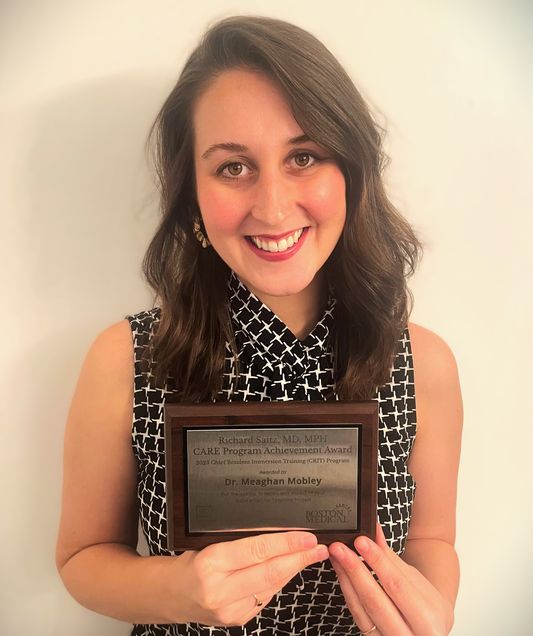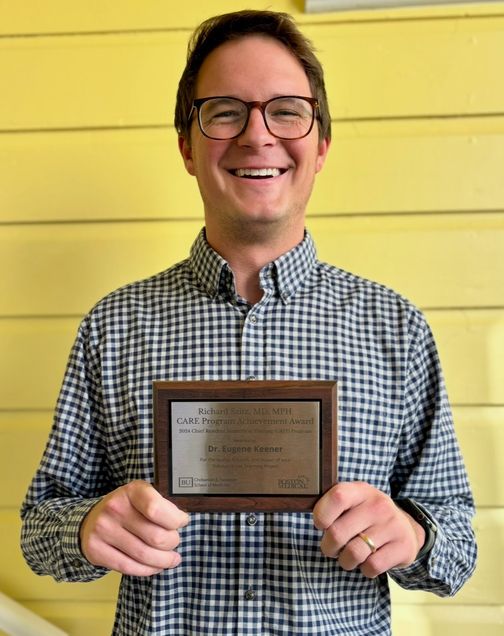Richard Saitz, MD, MPH Achievement Award Recipients
2024
Eugene (Brooks) Keener, MD
Internal Medicine Chief Resident
Dell Medical School at University of Texas at Austin
Austin, TX
Substance Use Teaching Project: Designing an Interprofessional Addiction Medicine Elective
Dr. Keener developed a 1-week multidisciplinary elective to improve senior internal medicine residents’ understanding of evidence-based practices in addiction medicine. He provided this education via asynchronous teaching tools (modules and podcasts) as well as in-person experiences at different addiction medicine care sites. These sites included an outpatient addiction medicine clinic, a methadone clinic, an open mutual support group meeting, and the inpatient hospital setting. Residents learned about interdisciplinary care models and observed licensed clinical social workers providing screening and brief intervention, among other activities. Dr. Keener hopes that this curriculum will enhance residents’ ability to effectively care and advocate for patients with substance use disorder. Through pre/post surveys and knowledge assessments, the pilot curriculum was deemed a success and will now be incorporated into the required curriculum for senior residents during the upcoming academic year.
“Dr. Keener has had a transformative impact on our residency program’s education and care for people with substance use disorders….He has clearly found his “ikigai” – addiction medicine is where Dr. Keener’s passion and talent meet society’s need!” (F. Parker Hudson, MD MPH – Internal Medicine Residency Program Director)
2023
Meaghan Mobley, DO
Primary Care Chief Resident, Internal Medicine Residency Program
Ascension St. Vincent Hospital
Indianapolis, IN

Substance Use Teaching Project: Integrating Addiction Medicine Curriculum into Internal Medicine Program
In her community-based Internal Medicine residency program, Dr. Mobley created a multifaceted educational program that integrated addiction medicine topics into the existing learning environment of residents and faculty. This included case-based learning throughout the year, to equip learners to screen, diagnose, and treat opioid, cannabis, alcohol, and stimulant use disorders. Her preliminary pre/post evaluation found that her educational program had a strongly significant impact on resident comfort in managing the care of patients with substance use disorders.
“Dr. Mobley…has remarkably achieved transformative culture change around patients with substance use disorders while enduring the rigors of residency training.” (Laurel Fick, MD – Former Internal Medicine Residency Program Director)
